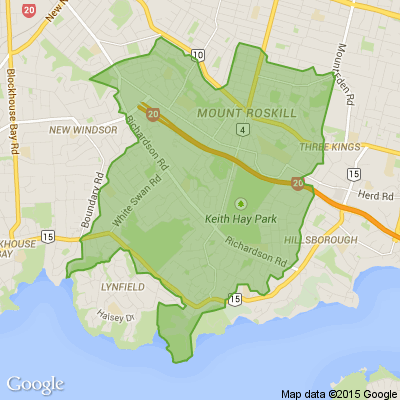JULY--1st----Today's changes that could affect your bank account
The start of July brings a raft of changes that will affect households across the country.
From prescription changes to mortgage tweaks, the rules, fees and taxes will affect the way that many people spend and borrow money.
Here are a few of them.
===================
Debt-to-income ratios and loan-to-value restriction tweaks
==============================================
New debt-to-income rules will limit how much banks can lend to borrowers, compared to their household income.
Only 20 percent of lending can go to owner-occupier buyers with a debt-to-income ratio of six, and only 20 percent of investors loans will be able to be at a debt-to-income ratio of more than seven.
The debt-to-income calculation takes into account other debt, such as student loans.
These rules are not expected to make a big difference initially, because not much lending is currently being done above those levels. However, they are likely to limit the extent of future house price growth.
At the same time, loan-to-value rules will be eased slightly to allow banks to give 20 percent of lending to owner-occupier borrowers with a deposit or equity of less than 20 percent, and 5 percent of lending to investors with a deposit or equity of less than 30 per cent.
Previously, they could only lend 15 percent to owner-occupiers with less than 20 percent deposit and 5 percent of lending to investors with less than 35 percent.
Prescription charges
=================
A $5 charge is coming back on for prescriptions.
This does not apply to people who are over 65, Community Services Card holders, people who are under 14 or people ages 14 to 17 who are dependent on a Community Services Cardholder.
Auckland regional fuel tax abolished
==============================
The Auckland Regional Fuel Tax scheme ended on 30 June.
This is worth 11.5c per litre on petrol, diesel and their biovariants.
FamilyBoost introduced
===================
The FamilyBoost policy takes effect from 1 July, offering a payment of 25 percent of early childhood education fees for households up to $75 a week.
This is available in full to households earning up to $140,000 and reduces for those earning up to $170,000.
Households should start saving their invoices from 1 July as either PDF or JPG files, Inland Revenue says.
Payments will be made in three-monthly blocks, starting in October.
Bright-line test reduced
===================
From 1 July, the bright-line test will reduce to two years, from the current 10 years, or five for new builds.
The bright-line test sets a limit on how long properties, apart from someone's main home, have to be held to avoid tax on capital gains when they are sold.
That means that properties sold on or after Monday now need to have been held for at least two years to avoid the automatic tax.
Chartered Accountants Australia and New Zealand is warning there could be some confusion, though, because the new rules focus on the "disposal" date of a property rather than the acquisition date.
"Care needs to be taken as the dates are determined differently. The bright-line end date is determined by when the seller first enters a contract for sale, whereas the start, or acquisition date is typically determined when title transfers."
He said that could mean that anyone who had entered negotiations before 1 July could still be captured under the old rule.
Paid parental leave increases
========================
Each year, the maximum amount of paid parental leave available increases.
How much you get is determined by how much you were earning before you went on leave.
From 1 July, the maximum is $754.87 a week before tax, compared to $712.17 previously.
Gaming duty for offshore operators
=============================
From 1 July, a 12 percent offshore gambling duty applies operators who are taking bets from New Zealand residents.
Offshore gambling operators have to register for GST if they make more than $60,000 in a 120-month period. Those that are registered for GST must also now register for the duty.
Excise tax on alcohol increases
The annual adjustment of excise tax on alcohol takes place on 1 July. This is based on movements in the consumer price index in the year to March.
=================================================
www.newshub.co.nz....
==================================================

Worst Xmas ever?
There's a a lot of planning that goes into Christmas day and sometimes things just don't go to plan. But it can be a good thing - a family mishap or hilarious memory that you can laugh about in Christmases to come.
Whether you burnt the dinner or were stranded at an airport...
Share your Christmas mishaps below!

Success isn’t just about numbers; it’s about making the right decisions at the right time.
At Moore Markhams, we work alongside you to understand your goals and help you navigate challenges, from tax compliance to business strategy.
As part of a global network, we provide local expertise backed by international connections, so you’re supported every step of the way.
Discover how Moore Markhams Auckland and our nationwide team can help your business thrive.

⚠️ DOGS DIE IN HOT CARS. If you love them, don't leave them. ⚠️
It's a message we share time and time again, and this year, we're calling on you to help us spread that message further.
Did you know that calls to SPCA about dogs left inside hot cars made up a whopping 11% of all welfare calls last summer? This is a completely preventable issue, and one which is causing hundreds of dogs (often loved pets) to suffer.
Here are some quick facts to share with the dog owners in your life:
👉 The temperature inside a car can heat to over 50°C in less than 15 minutes.
👉 Parking in the shade and cracking windows does little to help on a warm day. Dogs rely on panting to keep cool, which they can't do in a hot car.
👉 This puts dogs at a high risk of heatstroke - a serious condition for dogs, with a mortality rate between 39%-50%.
👉 It is an offence under the Animal Welfare Act to leave a dog in a hot vehicle if they are showing signs of heat stress. You can be fined, and prosecuted.
SPCA has created downloadable resources to help you spread the message even further. Posters, a flyer, and a social media tile can be downloaded from our website here: www.spca.nz...
We encourage you to use these - and ask your local businesses to display the posters if they can. Flyers can be kept in your car and handed out as needed.
This is a community problem, and one we cannot solve alone. Help us to prevent more tragedies this summer by sharing this post.
On behalf of the animals - thank you ❤️







 Loading…
Loading…




